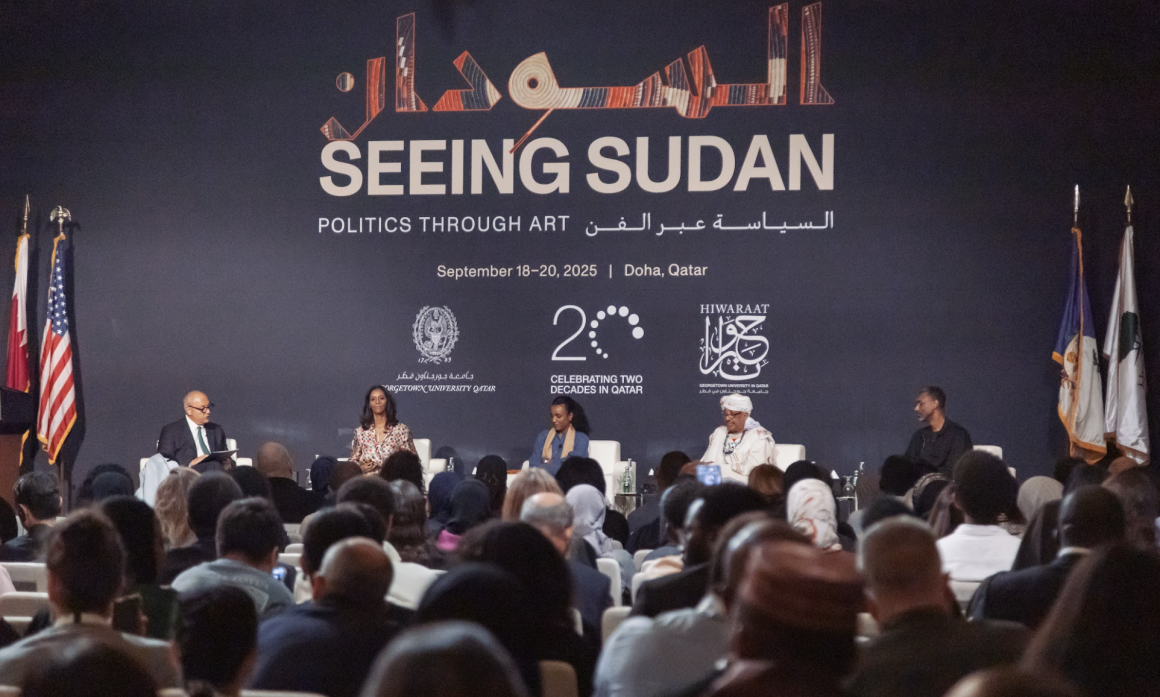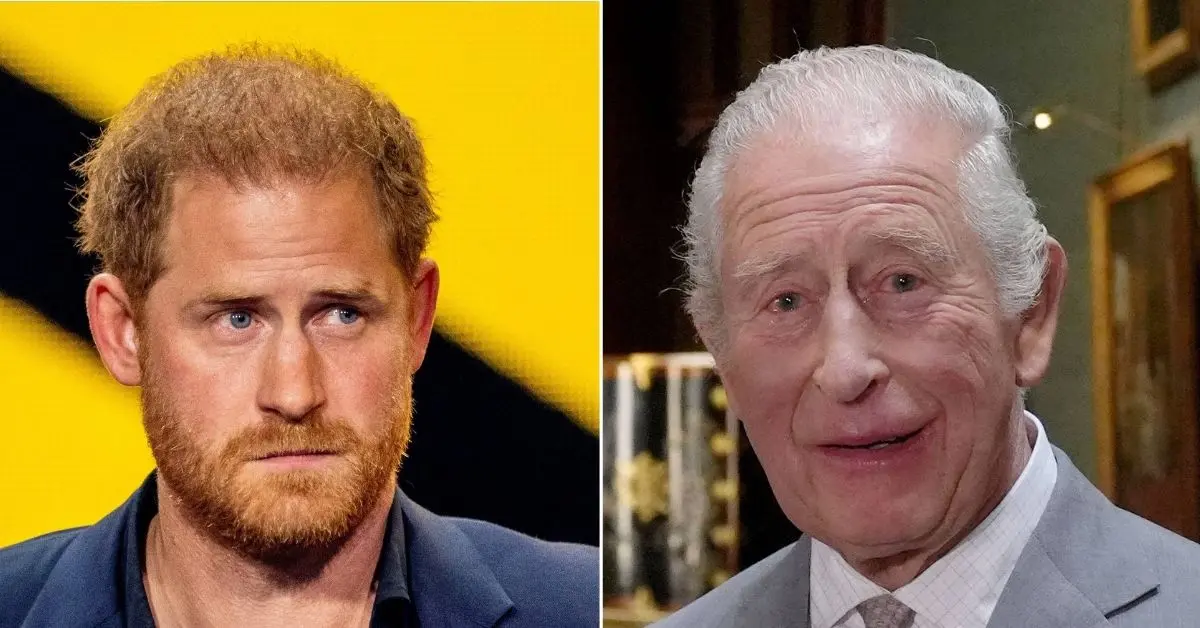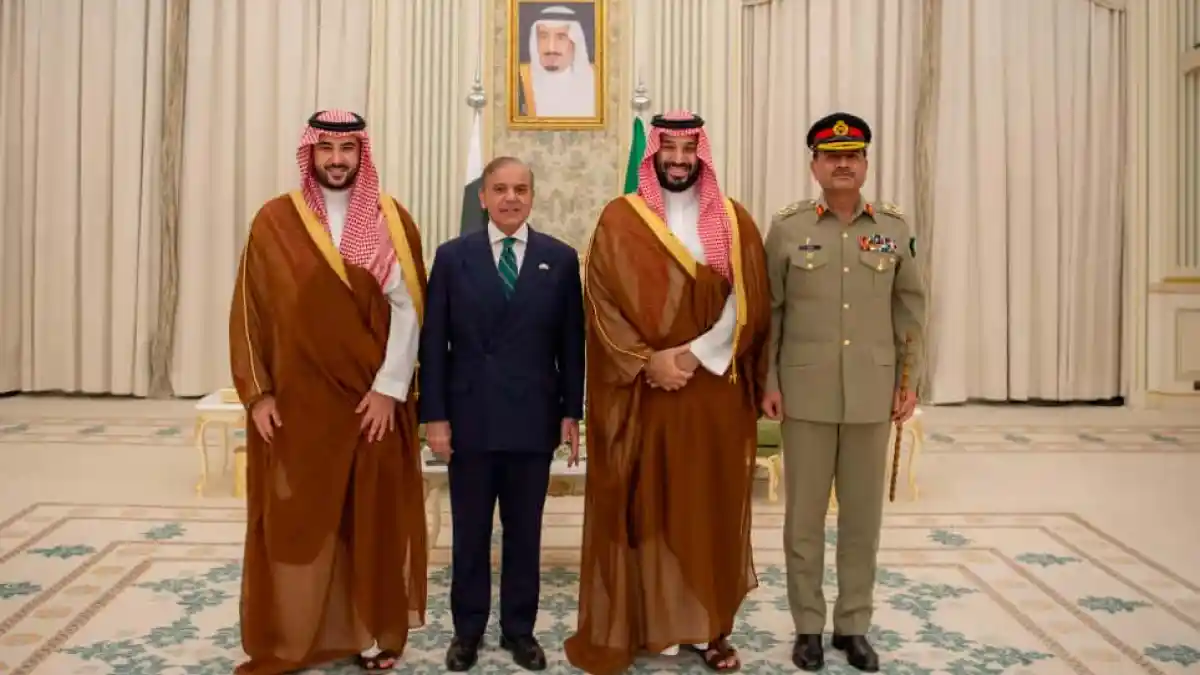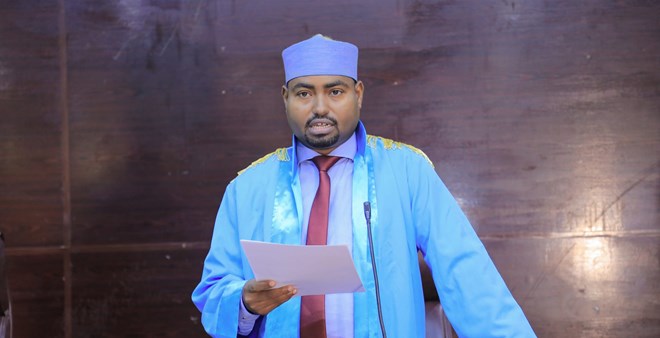By Sudesh Baniya
Copyright dohanews

GU-Q’s conference aims to discuss art, literature, and music as tools of resistance against a war that has threatened not just lives, but identity and memory itself.
Ever since the power struggle between Sudan’s two top generals — Abdel Fattah Al-Burhan of the Sudanese Armed Forces and Mohamed Hamdan Dagalo of the paramilitary Rapid Support Forces — turned into a full-scale war on 15 April 2023, much of the narrative around the country has been about the sheer pace and magnitude of devastation that it has brought.
Coverage has remained limited and is often framed around the power struggle between rival generals, contributing to a narrower narrative of Sudan — either as a country caught in yet another conflict or one whose crisis may have received limited international attention.
It is in the face of the suffering and stalled political solutions that Georgetown University in Qatar’s Hiwaraat conference opened on Thursday, calling on alternative approaches to shed light on the urgency of the conflict that has triggered the world’s largest displacement crisis.
“[This conference] represents our effort to discuss the soul of a nation,” said Dr Rogaia Abusharaf, a Sudanese professor at GU-Q, during the three-day conference’s opening address.
According to its organisers, Seeing Sudan: Politics through Art aims to “create a historic gathering of Sudanese creatives to call attention to the crisis through other means”.
Hailing art as one of the key pillars of diplomacy, the conference opened with a keynote panel consisting of Sudanese creatives whose work not only sheds light on Sudan but has also stood to counter the misrepresentations. Not only of the crisis, but of the country itself.
“This war, now in its third year, has become a contest between meaning and meaninglessness, archive and erasure, memory and oblivion,” said GU-Q Dean Safwan Masri.
Doha-based prolific political cartoonist Khalid Albaih was joined by acclaimed BBC broadcaster Zeinab Badawi, journalist and author Nesrine Malik, and multidisciplinary artist and art historian Dr Rashid Diab in the opening panel.
It began by confronting the erasure of Sudan’s sufferings as well as its cultural memories and history with Qatar Museums Chairperson Sheikha Al Mayassa bint Hamad Al Thani and Minister of Education and Higher Education, Lolwah Al-Khater, in attendance.
“The challenge has been to think not only about what the war in Sudan, but what Sudan itself is,” said Malik, columnist at The Guardian, discussing What does it mean to see Sudan truthfully in an age of distraction and denial? “The only way to hold on to it and give it shape in my head has been through storytelling, narrative, music, literature, and art.”
Such has been the scale of devastation in what has been termed as the one “destroying not just the country’s future, but also the country’s past.” The Tahrir Institute for Middle East Policy has called it the latest manifestation of the battle over the country’s identity.
As a result, civilian property, state institutions and cultural infrastructures have been deliberately targeted in addition to the grave human suffering that it has triggered. It has caused irreparable damage to what was once a regional superpower with notable figures.
“We cannot allow the forces who are trying to quell these miraculous individuals to be victorious,” said Badawi, the BBC broadcaster.
In addition to the destruction, Sudan’s limited coverage has created a sizeable gap between perception and reality. In a context where narratives of identity, history, and hope are increasingly contested, the panellists noted that creative expression can play an important role in offering alternative perspectives.
“Every act of creation is a refusal of the idea that Sudan can be reduced to rubble,” Masri, the GU-Q Dean and panel moderator, added.
The conference, with a packed line of activities, will continue over Friday and Saturday, aiming to confront not only the brutality of the present but also the responsibility of imagining a just future, according to its organisers.
“At a moment when the global community risks normalising Sudan’s urgent crisis through indifference, Seeing Sudan: Politics through Art asserts that the stories of the Sudanese people will not be silenced,” GU-Q said in a statement.
On Friday, the Sudan Retold exhibition will open at the Alhosh Gallery on the Pearl, open to the public through September 28.
Saturday’s sessions will conclude with a forward-looking panel on how Sudan can be reimagined.



